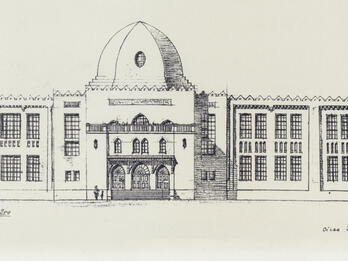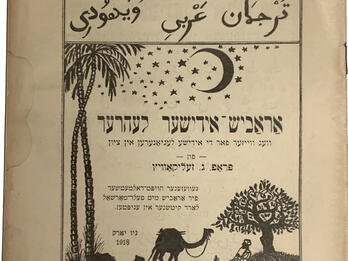The American Composer
For the critic of the future remains the problem of estimating to what degree residence in America influenced the art of Charles Martin Loeffler and of Leo Ornstein. Patent enough to our own day is the fact that, however much Boston has imprinted its character on the composer of “A Pagan Poem” and New York given the genius of Ornstein its coloring, upon neither artist has the New World come as a process of actual assimilation. For both it has rather more been an experience shaping racial directions already present. Were their work shot through with America, could we, in consequence, claim it, there would doubtless exist in our hearts greater affection for American music. The moments would be less frequent when discussion of the art as it stands at present comes perilously near boring us. We would feel a thanksgiving for the American composer that even the presence among us of an Horatio Parker cannot stimulate to any heat. Above all, we should not have to look entirely to the future for the music we want.
Certainly, it is difficult to feel enthusiasm for American music as we know it to-day. But, however manifest this lack of cordiality, its origin still remains mysterious. Plentiful discussion has not succeeded in satisfactorily elucidating it. Of late, the blame has been laid to the American’s lack of self-confidence that impels him to take his ideas and his art modestly and gratefully from Europe, and neglect his own. Whatever truth the suggestion contains, however much the failure of “Mona”1 can be explained in this fashion, one cannot ascribe to any such determinant the indifference of our public to the body of American music. In spite of a persistent truckling to the aesthetic arbitration of foreign societies, there still perseveres among us a favorable predisposition to work just because “it’s all of it home-brewed.” There is continual agitation throughout the country for the production of American compositions, and among both the native and foreign musicians in control of the situation there exists a corresponding willingness to produce such works, although this impulse is scarcely ever rewarded. The Metropolitan has courted failure after failure by mounting operas recommended chiefly by their domestic origin. The orchestral conductors have been assiduous and unsuccessful in their search for American novelties that please their audiences. The repeated offering of huge money-prizes as incentives to composition, the frequent festivals and concerts devoted solely to native talent, the never- ending discussion in the public prints of questions pertaining to Americanism in music, of remedies suggested for the present conditions, bear witness to a general wish for a grand national expression. But the wish has remained unfulfilled, and it is evident that such methods of stimulating art are unavailing. The ineffectuality of the American composer cannot be laid to the absence of desire for an American music. The appetite may be groping enough, but it is sufficiently conscious to feel intense disappointment with the response encountered up to the present moment. If the community is not certain precisely what it demands of the American composer, it feels, at least, that it gets from him nothing in any degree satisfying; that for solace and refreshment and inspiration it must go to the singers of other lands. It feels that his work, a pleasant enough diversion, is useless in the graver business of life, and with infallible practicality of instinct passes it over as something unrelatable to common experience.
And such it is. The fatal shortcoming of nine-tenths the music produced in America is its utter innocence of any vital relationship to the community. We have heard long the complaint that the American composer suffers from an unfamiliarity with his tools from which the superior technical education of the Old World saves the European. And it is ignorance of the use of his tools that hampers him. But by the use of tools one does not understand greater proficiency in counterpoint and orchestration. Of that he has sufficient. It is rather the knowledge of how to handle his material. If there is anything he lacks, it is the ability to draw the substance of his art from out the life that surges about him. For what else but the life that the artist shares in common with his compatriots is the material from which art is molded? Physical loneliness he may feel, spiritual never; for there is in him consciousness of what swells the breasts about him, a power of translating into personal terms the common experience, a sense of linked arms and of hearts beating together in one high purpose; and out of it he shapes his art, and with it he reveals man to himself and to his fellow, nation to nation, and age to age. It does not come through an intellectual attitude. It is rather the product of that emotional relationship to life, that openness by means of which the spirit of a community, of a nation, of whole continents and ages, comes into a man, and transforms him in its own image. To Shakespeare it came, to Balzac, to Whitman; to Bach and to Brahms; in our own day to Andreyev and to Stravinsky. Who touches them, touches a people, an age. Who touches the American composers, touches neither. Listen, if you will, to the clever and often erudite scores written here. Where for an instant do they speak of the proportions of our lives, of the energy in its myriad forms hurtling about us, of the vast hopes at stake, the vast dreams laboriously coming to birth, visible to any one with eyes half shut? Where for an instant is a ray cast into the chaos by which we can recognize ourselves, our fellows, our land, become conscious of health or evil, take new strength and courage and delight? Out of them all sounds one note, one common trait. A gulf separates the composer from the community for whom he would speak. The artist lives within himself, blind to what exists without, unacquainted with the very stuff of art. It is that unsubstantial contact that has lost the greater majority of our musicians the fruits of their efforts. [ . . . ]
It is faith that, in the final test, is wanting the American composer, as it is wanting the rest of us—faith in the American destiny. So much have we lacked it that consciousness of our tepidity is but slow in reaching us. We have long turned our back on our land, content with being outposts of Europe, vouchsafing America only a half-hearted interest. From the cowardice of withholding ourselves we must now part. [ . . . ]
The music of all races and all ages, from that of Asia to the songs of our negroes and aborigines,2 the fierce rhythms of our rag-time, are before us, to teach, and to be used. Over the country, leaping from town to town, ramifying miraculously, spreads a love of music, blazing the path for the song of democracy. But let our composers write over their art the words in which Stravinsky made his proud apology for “Le Sacre du Printemps”:—“I have performed an act of faith,” and a great national music will be ours.
Notes
[Mona is an opera with an English libretto by Brian Hooker and composition by Horatio Hooker that debuted at the Metropolitan opera in 1912.—Eds.]
[I.e., African Americans and Indigenous Americans.—Eds.]
Credits
Published in: The Posen Library of Jewish Culture and Civilization, vol. 7.




